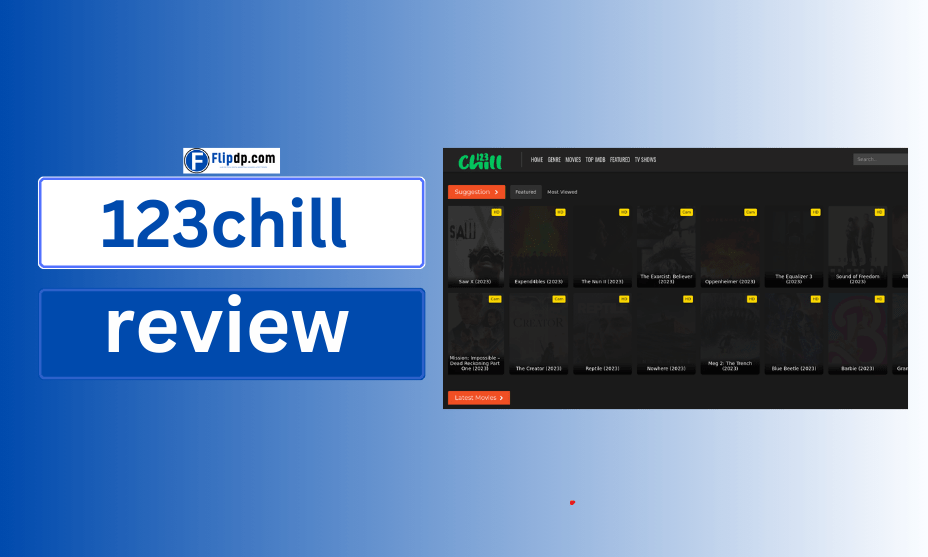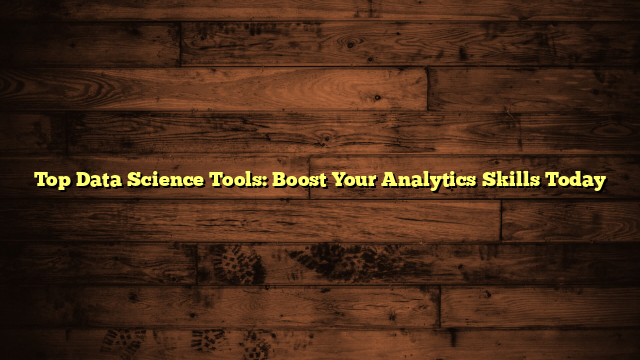Top Data Science Tools
Within the quickly evolving world of expertise, knowledge stands on the pinnacle of significance. The power to research and extract significant insights from large datasets is influencing industries from healthcare to finance to advertising. Information science has turn into one of the vital promising careers, and having the precise instruments is essential for achievement. On this complete information, we are going to discover the highest knowledge science instruments that may enhance your analytics abilities right this moment, equipping you to thrive on this dynamic discipline.
Why Information Science Issues
Earlier than we delve into the instruments, it is important to grasp why knowledge science is significant. Organizations right this moment acquire huge quantities of knowledge day by day, however this data is ineffective with out correct evaluation. Information science helps companies make knowledgeable choices, enhances operational effectivity, and improves buyer experiences. With the demand for data-driven decision-making hovering, mastering the highest knowledge science instruments is not only advantageous—it is crucial.
Understanding Information Science Instruments
Information science instruments are software program purposes and frameworks designed to facilitate knowledge manipulation, evaluation, visualization, and modeling. These instruments can vary from programming languages and libraries to built-in growth environments (IDEs) and cloud-based platforms. They allow knowledge scientists to cleanse knowledge, carry out exploratory analyses, create visualizations, and construct predictive fashions.
Prime Information Science Instruments
1. Python: The Language of Selection
Python is usually thought to be the king of knowledge science as a consequence of its simplicity, versatility, and huge ecosystem of libraries. Key libraries embody:
- Pandas: For knowledge manipulation and evaluation.
- NumPy: Important for numerical computing and dealing with arrays.
- Matplotlib: Used for creating static, animated, and interactive visualizations.
- Scikit-learn: A strong library for machine studying.
Python’s intensive assist for integrating with net knowledge, databases, and varied knowledge codecs makes it indispensable for any aspiring knowledge scientist.
2. R: The Statistical Powerhouse
R is one other fashionable programming language amongst knowledge scientists, particularly for statistical evaluation and knowledge visualization. Its benefits embody:
- Wealthy Libraries: Packages like ggplot2 and dplyr streamline advanced knowledge evaluation and visualization duties.
- Statistical Modeling: R excels in dealing with statistical strategies like regression evaluation, making it a go-to for statisticians and knowledge analysts.
Whil Python is usually seen as a general-purpose language, R stays a specialised instrument with a robust concentrate on statistics.
3. Apache Spark: Massive Information Processing
In an age the place massive knowledge reigns, Apache Spark stands out as an information processing powerhouse. It permits knowledge scientists to deal with massive datasets effectively with options corresponding to:
- Pace: In-memory knowledge processing drastically reduces turnaround instances in knowledge evaluation.
- Ease of Use: Spark’s APIs for languages like Python (PySpark) and R (SparkR) allow seamless integration with present knowledge science workflows.
This instrument is crucial for working with large-scale knowledge analytics and machine studying duties.
4. Tableau: Visualizing Information
Information visualization is essential to creating advanced knowledge comprehensible. Tableau is a user-friendly platform that makes a speciality of creating interactive and shareable dashboards. Highlights embody:
- Drag-and-Drop Interface: Supreme for customers with out intensive programming backgrounds.
- Actual-Time Information Evaluation: Allows customers to connect with varied knowledge sources and visualize knowledge on-the-go.
By adopting Tableau, knowledge scientists can successfully talk insights to stakeholders, making it one of many high knowledge science instruments for professionals right this moment.
5. Jupyter Pocket book: An Interactive Growth Atmosphere
Jupyter Pocket book is an open-source net software that lets you create and share paperwork containing stay code, equations, visualizations, and narrative textual content. Its options embody:
- Interactivity: Allows real-time code execution and visualization, making it perfect for exploratory knowledge evaluation.
- Multi-Language Assist: Whereas primarily related to Python, Jupyter additionally helps R and Julia.
This instrument is ideal for knowledge scientists trying to doc their analyses whereas sharing advantages via interactive notebooks.
6. Apache Hadoop: Managing Massive Information
Hadoop is one other important framework for large knowledge processing. It permits for the distributed storage and processing of enormous datasets throughout clusters of computer systems. Notably:
- Scalability: Hadoop is constructed for scaling from single servers to 1000’s, accommodating ever-growing datasets.
- Compatibility: Works seamlessly with varied programming languages, together with Java and Python.
For professionals coping with large datasets, Hadoop is an indispensable instrument within the knowledge science toolbox.
7. Energy BI: Enterprise Analytics Made Simple
Microsoft’s Energy BI is one other improbable instrument for visualizing and sharing insights throughout a company. Key advantages embody:
- Information Connectivity: Connects with quite a few knowledge sources, together with databases, Excel spreadsheets, and cloud companies.
- Interactive Experiences: Customers can create visually interesting reviews and dashboards to share insights with decision-makers.
With its means to remodel uncooked knowledge into interactive visuals, Energy BI is a precious instrument for knowledge scientists specializing in enterprise intelligence.
Enhancing Your Analytics Abilities
To really enhance your knowledge analytics abilities, merely utilizing these instruments just isn’t sufficient. Listed here are a number of actionable insights for higher mastery:
- Take On-line Programs: Web sites like Coursera, Udacity, and edX provide specialised programs specializing in varied knowledge science ideas and instruments. Enrolling in them will present invaluable hands-on expertise.
- Take part in Information Challenges: Platforms like Kaggle host competitions that mean you can apply your abilities with real-world datasets. Participating in these challenges enhances your sensible expertise and problem-solving skills.
- Be a part of Information Science Communities: Changing into a part of boards and native meetups lets you community with different professionals and share insights in regards to the newest developments and instruments in knowledge science.
- Learn Analysis Papers and Blogs: Staying up to date on trade developments, methodologies, and instruments via blogs and tutorial papers helps you stay a well-informed knowledge scientist.
Conclusion
Navigating the world of knowledge science is an thrilling journey, particularly when armed with the highest knowledge science instruments. From Python and R to Tableau and Apache Spark, every instrument has distinctive strengths that cater to totally different elements of knowledge evaluation. By leveraging these instruments and enhancing your analytics abilities via programs and group engagement, you possibly can propel your knowledge science profession to new heights.
In a data-driven world, the facility lies in your fingers. Embrace these instruments, improve your data, and begin making knowledge give you the results you want right this moment!











